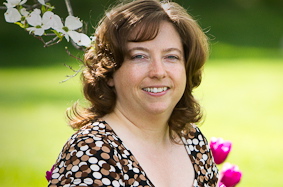

|
Greetings to nine new subscribers to Grief Recovery Tips. This issue is going out to 38 subscribers around the world. Feel free to forward Grief Recovery Tips to others who may be going through the trials of a grieving process after experiencing a loss. Loss hurts, and you don't have to go through it alone. Our feature article in this issue is "Why Grieve?" ************************************ If this issue was sent to you by a friend please click here to subscribe. ************************************
Today I noticed that visitors to www.stages-of-grief-recovery.com have come from 24 different countries. That amazes me! Grief is an experience common to mankind, but some cultures help grievers better than others. Today's article discusses why we need to grieve and how to get the support you need.
Why Grieve?We Are Not Prepared for Loss Most of us do not prepare in life for our grieving moments. Instead, we are thrust into the spotlight of grief without our permission. Some of us enter into grief kicking and screaming. Others passively, as if being dragged along like a rag doll as it pulls us down and sucks out our joy. Whatever the loss that suddenly makes us aware of a churning pot of emotion within us, we are not ready for it. Death is an offense to us. Even though it is one of the few guarantees of life, it is difficult to make sense of it. When we lose a loved one or suffer loss through a layoff, foreclosure, divorce or relationship break-up, we become aware of our vulnerability like never before. What is Grief? Grief is the natural, normal human response to loss. The pain we feel is evidence that we were connected somehow to another person, a pet, a home or community. Grief is what you experience when you expect that loved one or stability to be there for you and you reach out one more time and he or she or it is not there. While the grief may manifest in many different ways, affecting us physically, emotionally, spiritually, cognitively and socially, we all experience grief when a connection has been severed. Why Grieve? The process of grief, while uncomfortable, is actually the mind and body’s natural healing mechanism to repair after a severed connection. Grief is not a mental disorder that needs “treatment”, but rather a process that needs to be tended. The depth of our emotional pain needs to be expressed in a caring environment – with a friend or family member, a coach/counselor, or spiritual advisor. (If during your grief you are struggling with drug or alcohol use, or thoughts of harming yourself, we advise you to seek the help of a qualified mental health professional right away.) It is during this process of expression that the we are able to grapple with the deep questions of our soul about the relationship and about the loss. There may be hurt, anger, regret, bitterness, unexpressed appreciation and love all trapped in our heart. This complexity of emotion can be overwhelming. Tears provide an outlet for stress-causing chemicals to be rinsed out of the body. Sharing these thoughts and feelings with another caring person releases hormones in the brain that bring healing and connection with others. The natural temptation is to isolate when we grieve. We are caught off-guard by the sudden changes in what we want and need from others. We may not like being the needy one in a group. People around us don’t know what to say. Sometimes they are afraid of saying something that would make us cry, even though it would really be okay. We learn quickly how to avoid making others feel uncomfortable in our presence, because we need their acceptance and love at such a vulnerable time. What Can You Do? Identify the most supportive people in your life and tell them what you need. Ask them to listen as you talk about your feelings, memories of your loved one, or anger about your situation. Let them know you don’t need them to fix you, just to listen with a big heart.
"If There's Anything I Can Do" is an eBook that gives ideas to family and friends who want to show their care and support. It is written by those who know the suffering and pain of loss. An invaluable resource to friends and family members of the bereaved. Share this book with loved ones to help them understand what you need at this time. Or perhaps someone you know has experienced a devastating loss and you wish you knew how to help them in a meaningful way. Filled with many ideas, some very simple to do to let grieving friends and loved ones know you care.
Wishing you peace as you tend your grief, Debbra

Debbra Bronstad, M.S.
Follow us on our Facebook Page: Copyright © 2010 Debbra Bronstad. All Rights Reserved. Please feel free to forward this newsletter in its entirety with links remaining intact.
New! CommentsDo you have something to add? Please leave me a comment in the box below. |


